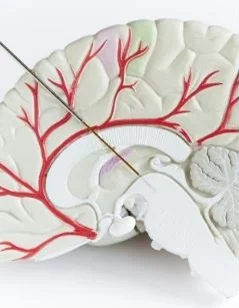Parkinson's disease is a neurodegenerative condition that impacts balance and mobility. The loss of dopamine-producing neurons in the brain is the underlying cause. Parkinson's disease affects individuals differently, and the progression of the disease also varies from person to person. This essay will provide a comprehensive discussion of the five widely recognized stages of Parkinson's disease.
Mild Symptoms at Stage 1
In the early stages of Parkinson's disease, symptoms are usually mild and may not significantly impact daily activities. Common signs include tremors in one limb, minor changes in posture, and coordination issues. These symptoms may occur on one or both sides of the body, but typically do not cause major disruption to daily activities.
Stage 2: Mild Symptoms
In the second stage of Parkinson's disease, symptoms become more pronounced and begin to affect both sides of the body. This stage is characterized by increased tremors, stiffness, and slowed movement. Individuals with stage two Parkinson's disease may also experience balance and coordination problems, which can lead to falls.
At this stage, daily tasks may become more challenging, and individuals may need to make lifestyle adjustments to manage their symptoms. For instance, they may need help with activities such as dressing or meal preparation.
Stage 3: Severe Impairment
In the third stage of Parkinson's disease, symptoms intensify and start to impede an individual's ability to perform daily tasks. People in stage three of Parkinson's disease may experience significant difficulties with balance, coordination, and mobility. Slow movements, stiffness, and tremors may also occur, hindering regular activities.
At this point, individuals may need help with daily tasks like getting in and out of bed, dressing, and showering. They may also experience changes in their speech and handwriting, as well as difficulty swallowing.
Stage 4: Severe Disability
The fourth stage of Parkinson's disease is marked by severe impairment. Individuals with Parkinson's disease may require assistance with daily activities at this stage. They may also experience significant stiffness, rigidity, and tremors, making movement challenging.
Individuals with stage four Parkinson's disease may experience non-motor symptoms like depression, anxiety, and cognitive impairment, in addition to motor symptoms. They may also encounter sleep problems, which can worsen their symptoms.
Stage 5: Parkinson's Disease
The final stage of Parkinson's disease is marked by severe impairment and extensive motor symptoms. Individuals in stage five Parkinson's disease may be incapable of standing or walking, and they may require around-the-clock care. In addition to motor symptoms, they may experience non-motor symptoms like hallucinations, delusions, and dementia. At this stage, quality of life may be significantly impacted, and individuals may need hospice care to manage their symptoms effectively.
Common Parkinson's Disease Symptoms
In addition to the symptoms mentioned in each of the five stages of Parkinson's disease, patients may experience various other common symptoms, including:
- Handwriting changes, such as smaller or more cramped letters
- Slurred or soft speech
- Sense of smell loss
- Having difficulty sleeping
- Anxiety and depression
To ensure proper management of Parkinson's disease, individuals with the condition and their caregivers should be aware of these symptoms and promptly report any changes to their healthcare provider.
Treatment Options and Diagnosis
Parkinson's disease diagnosis can be challenging due to the absence of specific tests that can confirm the condition. Healthcare providers usually evaluate an individual's symptoms and medical history, followed by imaging tests or specialist referrals for further examination. It is essential to undergo timely diagnosis to start treatment early and manage symptoms effectively.
Treatment options for Parkinson's disease may include medications such as levodopa, dopamine agonists, and anticholinergics to manage symptoms. Physical and occupational therapy can also assist individuals in managing their symptoms and maintaining physical function. In some cases, surgery may be recommended to help manage symptoms.
Final Thoughts
Understanding the five stages of Parkinson's disease can help individuals and caregivers prepare for the changes and challenges that may arise as the disease progresses. Parkinson's disease is a degenerative condition that can significantly impact a person's quality of life.
Though there is no known cure for Parkinson's disease at present, medications and therapies are available to manage symptoms and improve the quality of life. People living with Parkinson's disease should work with their healthcare provider to develop a personalized treatment plan that addresses their specific needs and goals. With appropriate treatment and support, individuals with Parkinson's disease can maintain their independence and quality of life as the disease progresses.



.webp)


%20(1).png)
.png)
%20(1).png)


%20(1).png)




%201.png)
